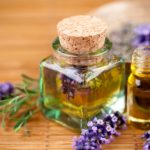 Feeling more than a little anxious these days? You’re not alone. The faster life gets, often the more intense we experience the ups and downs. There’s less of an emphasis on relaxing and enjoying the simple things. Modern life is much more focused on doing and achieving, ticking all the things we can off the to-do list each day and planning for the next.
Feeling more than a little anxious these days? You’re not alone. The faster life gets, often the more intense we experience the ups and downs. There’s less of an emphasis on relaxing and enjoying the simple things. Modern life is much more focused on doing and achieving, ticking all the things we can off the to-do list each day and planning for the next.
And we worry! We worry far too much about anything and everything. We’re faced with the constant onslaught of information (and fear!), from news media and Facebook postings to Twitter alerts about health concerns, environmental hazards, cyber bullying, and so on…coming at us at a mad pace.
Advertisement
The thing is, worry can be downright exhausting, and detrimental to your health. Which is why stress relief is so important. That can start with natural remedies for anxiety, such as eating a diet of fresh, whole foods (skip the take-out more often!), and supplementing your diet with anti-stress herbs. There are adaptogenic herbs – types of herbs that enhance your ability to resist stress, anxiety, trauma and fatigue by helping to boost the immune system and your energy. More about those in a minute. First, let’s look at anxiety and what can happen if you don’t get it under control.
Anxiety: Symptoms and effects if left untreated
 Anxiety is a normal part of life. There are going to be stressful times no matter how healthy you are or what kind of coping strategies you follow: Breathe deep, take a walk, take a bath… But excessive worry and fear can impact your everyday life, causing panic attacks or paralyzing you from moving forward with the things you need to do.
Anxiety is a normal part of life. There are going to be stressful times no matter how healthy you are or what kind of coping strategies you follow: Breathe deep, take a walk, take a bath… But excessive worry and fear can impact your everyday life, causing panic attacks or paralyzing you from moving forward with the things you need to do.
Here are the common anxiety signs and symptoms of which to be aware, from the Mayo Clinic:
- Feeling nervous
- Feeling powerless
- Having a sense of impending danger, panic or doom
- Having an increased heart rate
- Breathing rapidly (hyperventilation)
- Sweating
- Trembling
- Feeling weak or tired
- Trouble concentrating or thinking about anything other than the present worry
If these symptoms become a regular occurrence, you may have an anxiety disorder. Your worries may not go away on their own, so you want to talk to your doctor. Treatment and counselling will put you on a path to wellness.
You don’t want to let things get worse. Severe anxiety, if left untreated, can lead to or worsen other conditions. These include the following:
- Depression (which often occurs with anxiety disorder)
- Substance abuse
- Trouble sleeping (insomnia)
- Digestive or bowel problems
- Headaches
- Suicide
- Poor quality of life
Natural remedies for anxiety
We’re a medicated nation! Nearly 70 percent of Americans are on at least one prescription drug, and more than half take two, the Mayo Clinic and Olmsted Medical Center researchers say. Antibiotics, antidepressants and painkilling opioids are most commonly prescribed, their 2013 study found. And 20 percent of patients are on five or more prescription medications, according to the findings.

Drugs can save lives, it’s true, but our reliance on prescription pills to solve our ailments can sometimes mean we’re just treating or masking symptoms, instead of getting to the root cause of the health issue. If we don’t understand what’s really wrong and how we can change our habits to improve our health, we’ll just keep taking more and more pills, becoming increasingly dependent on pharmaceuticals. In so doing, we’re also putting ourselves at risk of the side effects of medications. They can be addictive, they may cause digestion problems, and harm your organs, including your liver and kidneys.
Try a natural approach before turning to medication. With anxiety, lifestyle changes, such as eating better, increasing your activity level, connecting more often with friends and family – all these strategies can help. And consider herbal remedy for anxiety, a way to harness the healing power of nature instead of a quick fix from your pill box.
Types of anti-anxiety herbs
 When it comes to natural remedies for anxiety, anti-stress herbs can help. Add them to your culinary creations, brew them in a calming tea, hot or iced for the summer season, add them to your massage oil or use in a scented oil burner.
When it comes to natural remedies for anxiety, anti-stress herbs can help. Add them to your culinary creations, brew them in a calming tea, hot or iced for the summer season, add them to your massage oil or use in a scented oil burner.
Let’s look first at the adaptogenic herbs, those commonly used for helping with stress and anxiety:
Rhodiola, often called “rhodiola adaptogen,” is one of the popular herbs used as a herbal remedy for anxiety. The root of this plant has been in use in traditional medicine in Siberia, Russia and China for centuries. It is one of the adaptogenic herbs that only grows in certain locations at high elevations in mountainous regions.
Goji berry or Lycium barbarum is well known in China as an excellent plant that contains both antioxidants and anti-inflammatory carotenoids and flavonoids. This herb has red berries on it that dry to a reddish brown color. Add them to your smoothies, trail mix or salads. The berry is known as a tonic herb for the liver, kidneys and blood.
Astragalus root: In Chinese traditional medicine, the root of this herb is commonly used strengthen the immune system and increase energy levels. Look for the variety grown in China.
Other popular anti-stress herbs to try include the following:
Lavender: Some research suggests that lavender massage can lower systolic pressure, the top blood pressure number that’s associated with stress. Try lavender tea for a change of pace, or put a few drops of lavender essential oil on your pillow or in your bath, or add a few drops to a cup of boiling water and inhale for a quick calm-me-down. You can also dab a few drops right on your skin – it’s one of the few essential oils that can be applied directly.
Lemon balm: Named after the Greek word for “honey bee,” lemon balm has been used at least since the Middle Ages to promote feelings of calm and well-being. Lemon balm is sold as a tea, capsule, and tincture. It’s often combined with other calming herbs such as hops, chamomile, and valerian.
Vanilla: The only fruit-bearing orchid, vanilla is a wonderful flavoring for foods and baked goods. The pods are picked green and cured in a labor-intensive, months-long process. This spice has a signature scent, which has been shown to alleviate symptoms of anxiety. Try a vanilla tea or a scented oil burner to create your own moments of serenity.
With these natural remedies for anxiety in your cupboard, you can help yourself breathe a little easier, and feel calmer and more in control. Natural methods, like these anti-stress herbs, are a great first step to good health and peace of mind.
Karen Hawthorne is managing editor at Health eTalk and BelMarraHealth.com. Karen has worked for the National Post, Postmedia News, CBC Radio Vancouver, the Edmonton Journal, the Kitchener-Waterloo Record and the Cobourg Daily Star, reporting on health news and lifestyle trends for over 15 years.
Related Reading:
Anxiety: Signs, symptoms and risk factors
Advertisement
Your heart starts to feel like it’s coming right out of your chest. Your hands are clammy and maybe start to tremble. Worst of all, your head feels as though it could explode. These are just some of the signs and symptoms of anxiety. Know the risks.
Reducing stress and anxiety with these 5-minute tricks
Your day may be filled with unwanted stress and anxiety because it’s busy and filled with tons of stuff that you need to accomplish. But, this stress and anxiety can lead to a number of mental health issues, including depression. To keep your mental health in optimal condition it’s important to remember to relax and enjoy life.
